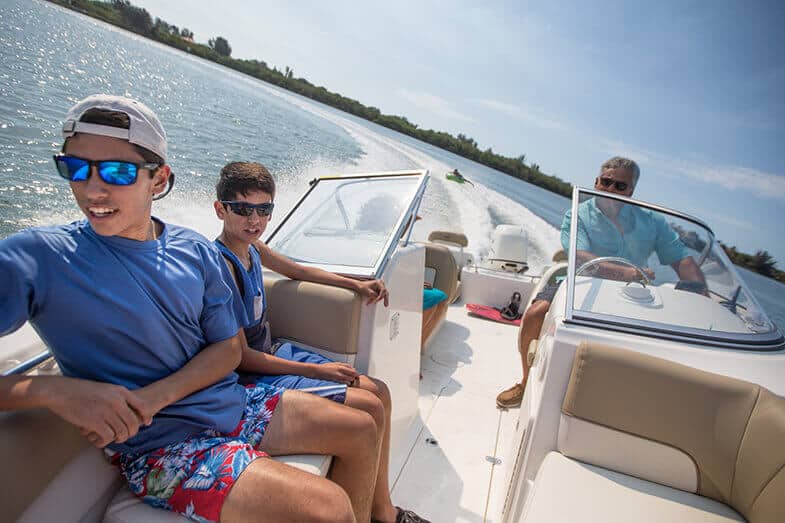One of the many benefits of being part of a boat community is the periodical updates and one-stop access to all relevant news and trends related to boating and recreational maritime activities. Not only can this information help you ensure legal and regulatory compliance with the law of the land, it also helps you stay abreast of the recent developments in the industry. Here are 5 of the most prominent, recent, updates that you should know of.
Amended Fire Extinguisher Rules
A couple of months ago, the US Coast Guard office released an amendment to the existing rules regarding onboard fire extinguishers for all recreational boaters, which has already gone into effect. The key highlights of this amendment include:
- If your boat was manufactured in 2018 or later then you are required to replace the fire extinguisher if it is over 12 years old, from its date of manufacturing.
- If your boat was manufactured in 2017 or earlier then you can continue to have undated extinguishers onboard provided they properly maintained. Ideally, though, you should replace them with newer extinguishers.
** If your fire extinguisher was manufactured anytime in the past 20 years, you can locate the manufacturing date on its bottom. You can turn to your boat community members to get tips on fire extinguisher maintenance or get suggestions for offers and deals on new ones.
Fuel Related Updates
As you are aware, ethanol based fuels are predominantly used in the industry. Typically, E15 is the most common type which contains 15% ethanol by volume. It is also usually less expensive than other percentage versions like E10 and so on. Most states in the US had restricted the sale of E15 during summer time. Reasons quoted for this were inflammability and stability of the compound. However, updated legislation around this will now make E15 available all through the year.
** E15 is claimed to rot the O rings on traditional boat motors, which is why E10 is recommended for them. Before tanking up on E15, check the compatibility and recommendation from your boat motor manufacturer or seek guidance from the experts in your boat community.
Life Jacket Regulations
All new personal flotation devices / life jackets have now started coming with new labels on them. One of the key things to check is whether your life jacket is approved by the U.S. Coast Guard (USCG). This can be ascertained by the USCG approval number on the label. Moreover, the labels will also contain icons to convey the performance level of the jacket and other indicators and warnings.
** This does not imply that your older life jackets are obsolete. You can continue using them, but ensure they are fit for use, inflate properly, and have no tears or rips on them.
Boating Safety Act of 2022, Florida
If you’re a resident of Florida or planning to go boating there, then you must know about the new safety bill being introduced for the state. The legislation is aimed at safeguarding boaters and waterways by implementing harsh penalties for violators of safety norms and fun seekers boating under the influence of intoxicants. This is especially applicable for boat rental service providers, with a slew of enhanced safety requirements being prescribed to reduce accidents. It is also aimed at deterring illegal rental operations, which have blossomed all over the state.
** You can seek similar information for other states by inquiring from the local members of your boat community.
Engine Cutoff Switches (ECOS)
Although this important federal regulation was introduced last year, and is quite likely to have been discussed often in your boat community, it deserves a mention now, as well, since efforts have been amped up by the authorities to ensure compliance with it. The regulation is applicable across the US and for all motorboats with 3 bhp or more power and less than 26 feet in length. It requires such boats to have an ECOS installed on them and the operator to have an ECOS link on their person at all times. This is extremely important in case a person is thrown overboard to kill the engine and avoid grievous injury.
Register on one of the best boating communities in the US to never miss important updates and enjoy an informed and safe boating experience.











